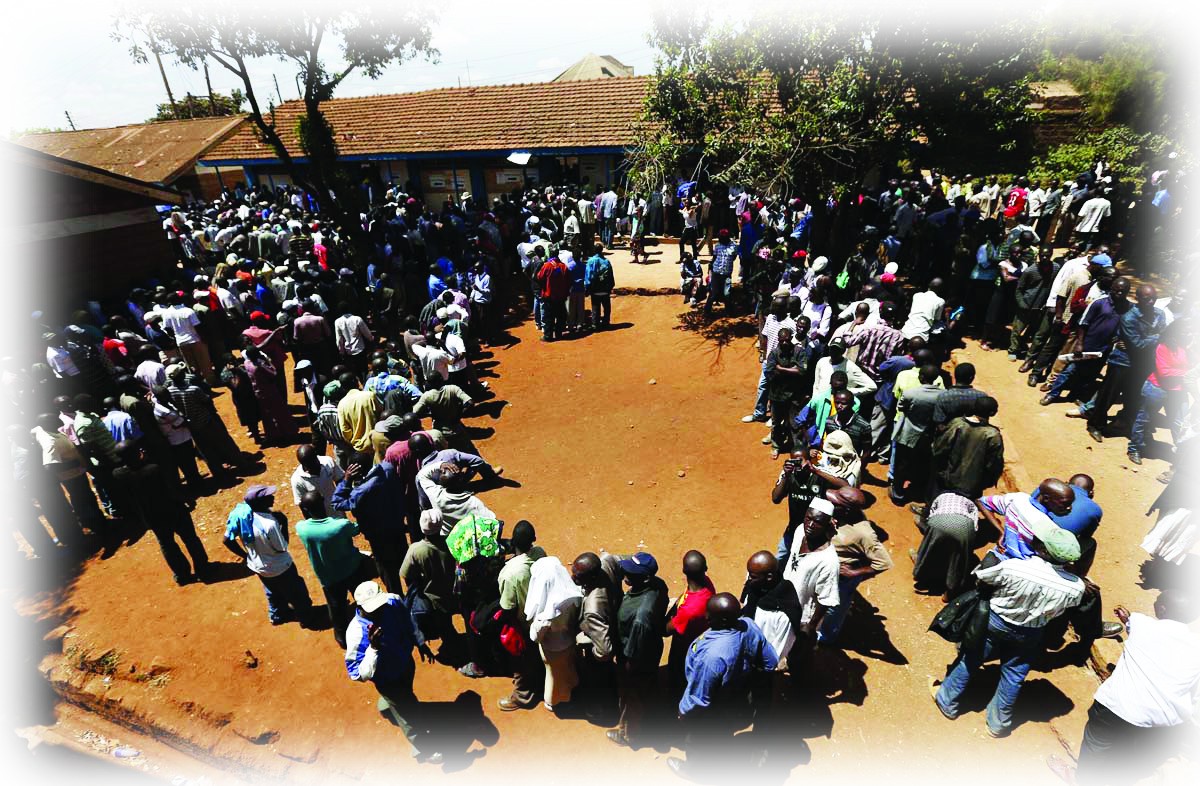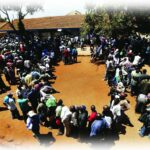
A Weekly Report on Kenya’s Electoral System and its Preparedness for 2017 elections.
26 May, 2025In compliance with principles laid down in the constitution, the applicable electoral laws, and the Supreme Court decision of September 1st, 2017, Kenya stands ready once more to execute its constitutional and democratic mandate by going to the ballot on 26th October 2017. This vote places Kenya at a defining moment whose success or failure will determine the country’s and the region’s stability. Great threats to a free and fair election and gross violations of human rights remain imminent if the calls for violent disruption to the election are not outrightly called off. The world hopes that Kenya chooses the path of stability & democratic progress.
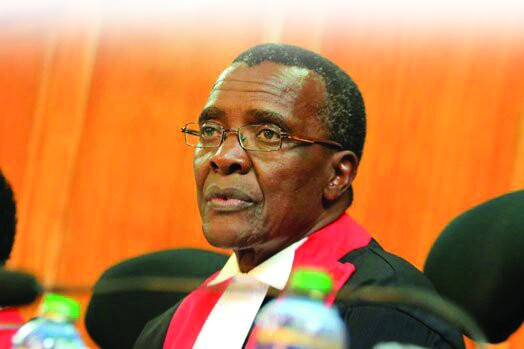
African Electoral Observation Group October 26th 2017 Pre Election Statement
In compliance with principles laid down in the constitution, the applicable electoral laws, and the Supreme Court decision of September 1st, 2017, Kenya stands ready once more to execute its constitutional and democratic mandate by going to the ballot on 26th October 2017. This vote places Kenya at a defining moment whose success or failure will determine the country and the region’s stability. Great threats to a free and fair election and gross violation of human rights remain imminent if the calls for violent disruption to the election are not out rightly called off. It is the world’s hope that Kenya chooses the path of stability and democratic progress.
Volume 8 No. 2
22 October, 2017
Part of the Africa Electoral Observation Group Reports on African Elections
©African Electoral Observation Group
P.O. Box 14670 00400 Nairobi
0722217602
media@electionsafrica.org
www.electionsafrica.org
Twitter: @Groundzeroke
Facebook: IPG Justice
Ground Zero is an African Electoral Observation Group initiative on elections in Africa. Elections have become moments of vulnerability to violence, conflict and the near disintegration of states. These moments expose and exploit the weaknesses of institutions and the entire state. The objectives of this initiative are;
LIST OF ACRONYMS
| AfriCOG | Africa Centre for Open Governance |
| BVR | Biometric Voter Registration |
| CORD | Coalition for Reforms and Democracy |
| CA | Communication Authority of Kenya |
| ECK | Electoral commission of Kenya |
| ID | Identification Document |
| ICC | International Criminal Court |
| ICT | Information and Communications Technology |
| IEBC | Independent Electoral and boundaries Commission |
| IFES | The International Foundation for Electoral Systems |
| KANU | Kenya African National Union |
| KDF | Kenya Defense Forces |
| K-DOP | The Kenya Domestic Observation Programme |
| KPU | Kenya people’s Union |
| MVR | Mass Voter registration |
| NASA | National Super Alliance |
| NARC | National rainbow Coalition |
| NIS | National Intelligence Service |
| NYS | National Youth Service |
| NCIC | National Cohesion and Integration Commission |
| ODM | Orange Democratic Movement |
| TUCK | Trade Unions Congress of Kenya |
| WDM | Wiper Democratic Movement |
MAP OF KENYA
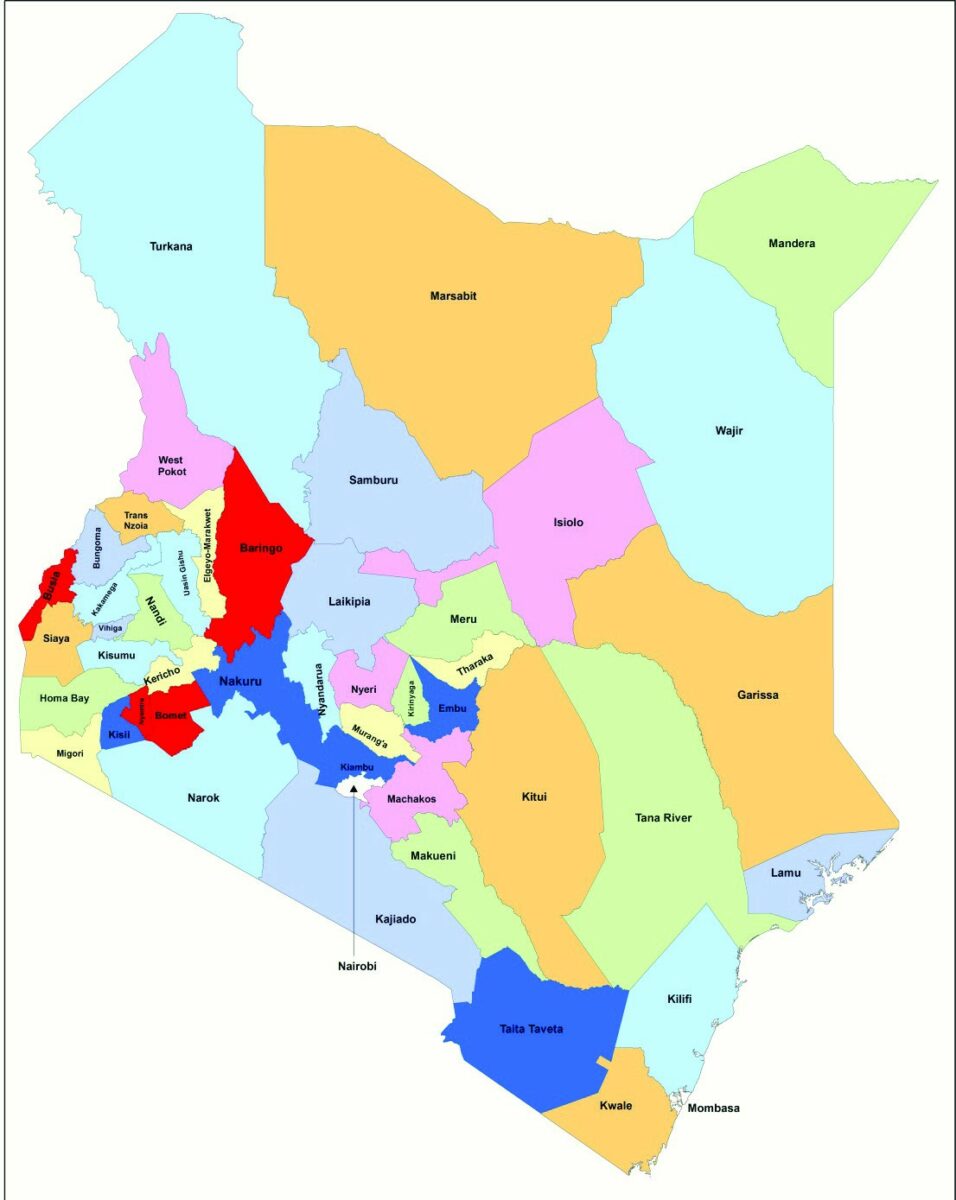
1. INTRODUCTION
With barely three days to the fresh presidential election, Kenya finds itself in the stereotype African election scenario once again; the period leading to October 26th has become a period of vulnerability to political agitation and violence, conflict and the breakdown of constitutionalism and democracy.
We have 489 long term observers under our mission and numerous others under short term observation specifically around the election period. We have been receiving and filing reports since January 2017.
We have a project team specifically set aside for monitoring the Independent Electoral and Boundaries Commission IEBC. It is in keeping with our observation before the 8/8/2017 election that IEBC remains intact and capable of conducting a free, fair and credible election. We note that in the last sixty or so days, the commission has suffered immense attacks and has become the main issue leading to 26th October 2017. It has been an exploitation of its real and manufactured weaknesses with the main objective of completely obstructing and scuttling the election body and election management.
The IEBC is an independent constitutional commission with the exclusive responsibility of conducting elections in Kenya. On August 8th 2017, the commission conducted six elections, majority of which have not come under any contest or competition. Some have and the courts are yet to rule on them. The presidential election was invalidated and the IEBC ordered to conduct a fresh poll within sixty days which now falls on October 26th 2017.
IEBC faces many challenges least of all from within with one commissioner Dr. Roselyn Akombe absconding duty, resigning and has continued to cast aspersions at the commission from her New York base. The Chairman himself, Wafula Chebukati has expressed worry but affirmed that the Commission can indeed conduct a free, fair and credible election on 26th October 2017. The IEBC CEO, Mr. Era Chiloba has taken leave.
From our observation and continued engagement with the Commission, the election management body remains largely intact and has detailed several changes to ensure the coming election abides by the Supreme Court decision.
The commission exists within a constitutional mandate and so does the election process itself. This independent constitutional space, processes and timelines are for us the most critical elements for Kenya today.
The commission also exists within a political environment and indeed administrates over a political process. The commission in itself is can however not be political and cannot bend to political push and pull because its place and mandate exist within a guaranteed constitutional construct.
Way above the politics to which the commissioner and chairman have seemed to sway to, it owes an even bigger subjection to the constitution and to the people of Kenya. The commission must in the bare minimum execute its constitutional mandate of conducting an election on October 26th 2017. It has the capacity, facilitation and good will to do so and it must conduct a free, fair and credible election. It is well constituted to, it is well prepared and Kenya is ready and willing and the world expects it.
We have also observed threats to the conduct of a free, fair and credible election from politicians. Attacks on logistical, deployment and personnel preparations for the election in the Counties of Kisumu, Siaya, Homabay and Migori. These are actions perpetrated by specific political players in the election. This has led to intimidation and obstruction of a constitutionally mandated process and a gross violation of human rights. IEBC officials nevertheless soldier on in the midst of difficulty and danger to their own lives.
Notwithstanding the attacks on the institution, we have observed that preparations for the elections continue smoothly in the other 44 counties and promise a smooth, free, fair and credible election.
It is our finding that all obstruction currently underway by specific players within the election is mischievous and aimed at ensuring that Kenya does not have a free, fair and credible election. The IEBC itself remains blameless in the situation and is pushing on despite the difficulty and challenges. The IEBC remains intact and we are satisfied it has the capacity to hold a free, fair and credible election.
The idea of a boycott on elections, without violent disruption also looms large. This however presents a new threat where the turn out at the election will become political fodder. It is very likely that in the event a majority of the 19 million registered voters do not show up, a losing candidate may claim a “negative victory”. There is a real threat that the results will be contested on a political front based solely on the number of voters who turn up at the ballot.
Kenya cannot and should not allow the actions of its politicians, hell bent on causing mayhem, to subvert their fundamental political rights as enshrined in the bill of rights. The IEBC should not be maligned and punished for the actions of politicians. It is an unacceptable transference
of blame and indeed constitutes offenses both under the Elections Act and the Penal Code. It is a subversion of the constitutional order of the nation.
Many actors in the election management process have the platform to call out threats to a free, fair and credible election. Indeed many, including ourselves have done so. The aggregate of authority however singularly rests on a court of competent jurisdiction and indeed only after the election. An election is a process that can only be quantified and qualified after the fact, not before. It is therefore our recommendation that all queries with the process should be brought before the Supreme Court either before or after the election.
Kenya’s constitution is barely seven years old and it has come under its most strenuous challenge yet. It stands at the cusp where it can be consumed by the same politics that created it. It has stood the challenge and within itself, it provides Kenya with a way to redeem and confirm itself. This is the 26th of October 2017. An election date is a critical timeline built within the state for the nation to continuously reinvigorate itself. Kenyan cannot abscond a date with itself. The IEBC should answer to its call of duty and provide Kenya with its irreducible minimum.
October 26th remains the only irreducible minimum for Kenya. The IEBC remains ready and capable of holding a free, fair and credible election. Kenya should stick to the side of constitutionalism, the rule of law and the integrity of its institutions. Politicians should not be allowed to benefit from their own mischief.
Finally, we call on the International Community, fellow Observer Groups and Missions, Human Rights organizations and the Kenyan people themselves to exercise extra vigilance on Kenya in the coming days. It is our observation that Kenya stands at a point of possible gross human rights violations on Election Day. The right to vote remains a guaranteed human right and must be safeguarded for all who intend to invoke it. Similarly, those who intend to boycott the vote should be guaranteed their right but neither should impede on the other.
This therefore becomes a special observation, we are not only looking out for a free, fair and credible election but the guarantee that all human rights accompanying the process shall be safeguared.
2. WHAT CONSTITUTES AN ELECTION?
Elections in Kenya are conducted within the constitutional context of a multi-party democracy and a presidential system. The voters directly elect the President, Senate, County Assembly, and National Assembly. The Independent Electoral and Boundaries Commission (IEBC) has the mandate of organizing and executing the elections.
For the presidential elections, Voter registration is among the initial steps of the electoral process in Kenya. The IEBC conducts a voter registration exercise in all constituencies. Legible citizens who have the required qualifications are registered as voters through capturing individual biometrics. Prior to the voter registration, the electoral agency hires and trains voter registration clerks throughout the country. The next activity is checking of voters’ register.
In this stage the registered voters are given an opportunity to confirm whether their details appear on the voters register.
The IEBC then announces the election dates after dissolution of each house of parliament. After the dissolution of parliament, the speaker of the national assembly declares the electoral seats vacant. The chairperson of the IEBC declares vacancies in all constituencies and make public the election date. Subsequently, the IEBC announces the duration in which registered political parties nominate their candidates for parliamentary seats. The commission later receives the names of the nominated candidates who got certificates from their parties. The commission then registers the nominated candidates.
Voter education and appointment of election officials is also conducted by the IEBC. At this time, the IEBC educates voters are educated on the voting process. This is done through media awareness and adverts throughout the country. The commission also enlightens the people on the significance of voting. The IEBC also appoints electoral officials such as Returning officers, presiding officers, and polling clerks. The official are given the mandate of supervising the electoral process in the various stations.
On the Election Day, candidates are asked to ensure that they have agents who monitor all the events of the day. After the voting, the votes are counted at the polling stations. The presiding officer delivers results to the returning officer at the constituency level. The results from the constituencies are then transmited to the national tallying center.
By the foregoing, an election is both long term and short term. It constitutes the entirety of the process not just the election day. As we approach the 26th October 2017 presidential election, the short term, specifically what constitutes an election on the election day becomes paramount in the political environment and context within which the election will happen.
Faced with a possible boycott and probable obstruction and scuttling of the election on election day, Kenya faces the critical challenge of defining what a presidential election is under its constitution.
The constitution lays down the basic procedure for a presidential election n Article 138. Procedure at presidential election
- If only one candidate for President is nominated, that candidate shall be declared elected.
- If two or more candidates for President are nominated, an election shall be held in each constituency.
- In a presidential election—
- all persons registered as voters for the purposes of parliamentary elections are entitled to vote;
- the poll shall be taken by secret ballot on the day specified in Article 101(1) at the time, in the places and in the manner prescribed under an Act of Parliament; and
- after counting the votes in the polling stations, the Independent Electoral and Boundaries Commission shall tally and verify the count and declare the result.
From the foregoing a basic definition of a presidential election where more than one candidate has been nominated would be,
A presidential election is an election for president conducted in each constituency where all persons registered as voters are entitled to vote in secret ballot, on the specified date and places as gazzetted by the IEBC or in places qualified by the presiding officer in consultation with the returning officer under section 64 and 64a of the Elections Act on the election day, where results are then tallied, verified and declared.
There exists exceptions to conducting an election in every gazetted polling station as is provided for in Section 64 and 64a which give the Presiding officer at a polling station discretionary powers to determine the conduct of an election at their respective polling station.
64. Adjournment, etc., of polling by the presiding officer (1) Notwithstanding the terms of any notice issued under the Act or these Regulations, a presiding officer may, after consultation with the returning officer, adjourn the proceedings at his or her polling station where they are interrupted by a riot, violence, natural disaster or other occurrence, shortage of equipment or other materials or other administrative difficulty, but where the presiding officer does so, the presiding officer shall re-start the proceedings at the earliest practicable moment.
64A. Postponement of an election by the Commission (1) The Commission may, where a date has been appointed for holding an election, postpone the election in a constituency, county or ward for such period as it may consider necessary where— (a) there is a reason to believe that a serious breach of peace is likely to occur if the election is held on that date; and (b) it is impossible to conduct the elections as a result of a natural disaster or other emergencies.
(2) Where an election is postponed under sub regulation (1), the election shall be held at the earliest practicable time. (3) Notwithstanding the provisions of this regulation, the Commission may declare the results if satisfied that the result of the elections will not be affected by the votes yet to be received and tallied from the affected polling stations.
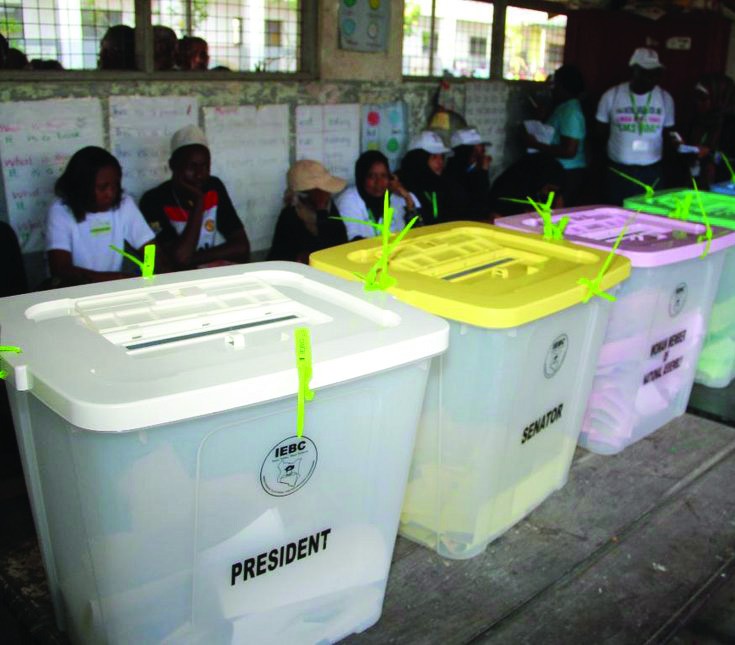
3. BASIC MINIMUMS OF THE FRESH ELECTION
Article 140 (3) of the Kenyan constitution provides that once a presidential election has been invalidated by the Supreme Court, a fresh election should be held within sixty days after the determination. The Supreme Court of Kenya nullified the Presidential poll on 1st September 2017.
The 60 days period provided in the constitution lapses on 1st November 2017. Failure to conduct the polls within the 60 days may have gross consequences and this may plunge the country into a constitutional crisis.
Article 138 provides that an election should be held in all constituencies if there are two or more nominated presidential candidates. All registered voters are entitled to vote and they should vote through a secret ballot on the day specified by the IEBC.
The electoral agency must ensure that it strictly conforms to all the electoral laws provided in the constitution. This will ensure that it delivers a free, fair, transparent and credible election. The commission is expected to have a level playground for the candidates.
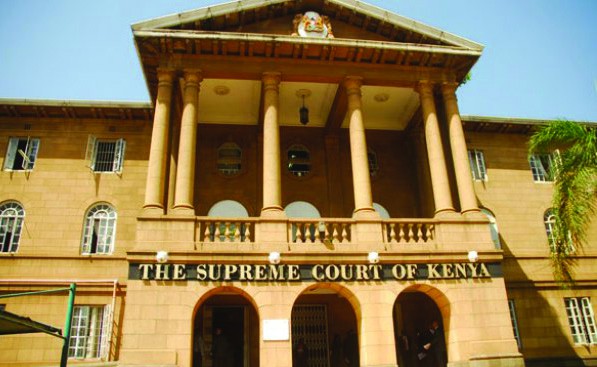
4. IEBC PREPAREDNESS
The Independent Electoral and Boundaries Commission has put various measures in place in its aim of delivering a fresh and credible poll on 26th October 2017.
- The electoral body organized a standardized training to all the 290 Returning officers and their deputies. The four days training exercise took place at Nairobi’s Safari Park hotel. Around 700 0fficials were trained by the electoral agency. The IEBC said that the training of the ROs and their deputies took place at a central place so as to guarantee standardization and harmonization. “We are training all ROs and DROs countrywide at one venue for the sake of standardization and harmonization],” IEBC wrote on Twitter.
- The electoral agency has liaised with the French Company, OT- Morpho, in ensuring the KIEMS kits are reconfigured so as to transmit both text and scanned images of Form 34B simultaneously. This move will seal loopholes which led to the annulment of the August 2017 presidential polls. The new function allows Returning Officers to upload official Forms 34B filled, verified and signed by IEBC. More so, the function allows presiding officers to transmit results to both the constituency tallying centre and the national tallying centre. In the August polls, the results transmission system allowed election officials to send text results only after a failed attempt. However, the reconfiguration of the KIEMS kits has removed that option and only both text and image will be allowed. The KIEMS kits reconfiguration will ensure that the electoral officials will ensure that the commission will have data that it can explain since the scanned images of Forms 34B will be available.
- IEBC gazetted what a complimentary system is. This was after the commission sought clarification from the court. On 12th October 2017, the electoral commission published procedures for transmission of election results from the polling stations to the Constituency Tallying Centres and the National Tallying Centre. The commission also gazette the complimentary mechanism of electronic transmission of results. The mechanism allows Presiding officers in polling stations that are outside 4G or 3G internet connectivity to move to the nearest point from the polling stations that has a network coverage and transmit the results.
- The IEBC also gave a comprehensive procedure which will give a guidance on results tallying at the Constituency Tallying Centres and the National Tallying Centre. The procedure will ensure strict compliance with the Constitution and the election statutes. The presiding officer will be expected to fill in Form 34A upon votes counting. He/she should also ensure that the presidential candidates’ agents will sign Form 34 A before the presiding officer appends his signature.
- IEBC has significantly reduced the number of polling stations that have a low network coverage. In the August polls there were 11,155 polling stations that had a low network coverage. The commission has reduced the low network coverage stations to 4,500. This has been done by ensuring each of the KIEMS kit has two SIM cards from different service providers. The kits have been configured with leading mobile services provider Safaricom as the main network provider with Airtel and Telkom as backups. “We have hundreds of SIM cards to fix, but Safaricom is the main line in all the kits,” OT-Morpho staff confirmed.
- The electoral agency has vowed to be more transparent and accountable in the manner of how it will conduct the fresh presidential election. IEBC has made the 290 constituencies the locus of the entire electoral process. The commission will provide a projector at each constituency. The Returning Officers will use the projectors to key in results into the statutory forms in the full glare of all. This will guarantee transparency as there will be no room of altering the election results. The IEBC is do all ways to ensure that there are no pitfalls in the fresh election which led to the invalidation of the August polls.
- The electoral commission is having plans to gazette the procedure of retrieving original forms that may be mistakenly placed and sealed in ballot boxes. The commission is leaving nothing chance and hence it is coming up with various regulations to safeguard the fresh elections. IEBC is planning to gazette a change which will allow presiding officers to open sealed ballot boxes at the constituency to retrieve any election material mistakenly stuffed at the polling station. The current Election Act requires that the sealed ballot boxes after results are announced at the polling station can only be opened upon obtaining a court order. IEBC seeks to change so that a presiding officer who mistakenly puts election material in a sealed ballot box at the polling station need only to raise the matter with the returning officer at the constituency tallying centre and the sealed box will be opened. However, the new regulations require the presence of the candidates agents at the constituency centre.
- The commission has also planned for the standardization of statutory forms (F34 series). This will ensure that the errors encountered will be minimal. The IEBC will provide Draft F34B to all the presidential candidates’ agents before the printing of the final form. Moreover, the commission will involve the media in the live coverage at all the constituencies.
- The IEBC has said the media and other independent observers will have access to the entire election process. This include ballot paper printing, deployment and reception of election materials, polling, counting at the polling stations and tallying at the constituency and national centre. “The commission will provide access to accredited media houses to cover results announcements at all levels. Media will be encouraged to show a live feed of the verified results,” the commission said. This will provide visibility and increase transparency in all its operations.
- The electoral agency will also have agents at all stages of the commission’s operations. The agents will be tasked with the duty of monitoring all the operations and reporting any cases of anomalies witnessed. The Commission will then act accordingly so as to guarantee a credible poll. Lastly, the electoral agency will have ICT agents who will monitor all ICT operations involving the fresh elections. The commission has hired 580 ICT support and also ICT agents who will deployed in all constituencies.
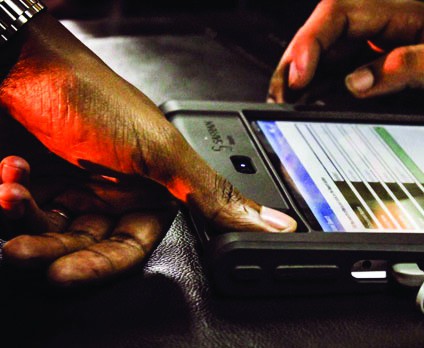
2. THREATS AND RISKS TO THE ELECTION
The Election Amendment Laws
The Election Laws (Amendment) Bills 2017 has caused great division among the political class in the country. The amendments proposed by Jubilee law makers has a number of changes. Firstly, the bill that is currently awaiting presidential assent drops the requirement that the IEBC Chairperson be a person who is qualified to hold the office of judge of the Supreme Court under the Kenyan Constitution. The proposed amendment also removes the provision that the chairman be a lawyer. It also provides that the vice-chairperson to automatically head the IEBC in the absence of the Chairperson. In an instance that both the chairperson and the vice chairperson are absent, the proposed law allows the other commissioners to elect one of themselves to act as the chairperson.
The proposed law also reduces the quorum of the commission from five to half of the existing members but not less than three. In a case there is no unanimity on a decision, issues will decided by a majority of the commissioners present and voting. More so, the proposed amendment bill provides for simultaneous electronic and manual transmission of tabulated results from the polling stations to the constituency and national tallying centre and publish the result forms in a public portal. In cases where there is a discrepancy between the electronic and manual results, the manual results shall prevail. The amendment also requires the commission to announce the results when all forms are available. Failure to transmit the results electronically will not be a ground of invalidating the result.
The amendment also proposes that the IEBC should have a complimentary system. Result forms cannot also be declared void if they are not in line with the format that is prescribed as long as the deviation is not designed to mislead. A presidential election petitioner will now will be required to prove the irregularities. Additionally, the amended Law provides that if a presidential election is annulled, the IEBC should publish a notice showing that no candidate was elected and announce the date for the fresh polls within seven days. The nature of the petitioner will determine the candidates to participate. In a situation where there are two candidates and one withdraws, the one remaining will be declared to have been elected unopposed. The proposed amendment also makes an offence for any presiding officer or returning officer to knowingly fail to sign or fill completely result forms, submit incomplete forms or change or falsify them. The person will serve a five years jail term without the option of a fine.
The Election Amendment Laws has intensified the political battle ahead of the fresh presidential polls. The opposition leaders have strongly criticized the laws and have asked Jubilee to withdraw the laws. The opposition leaders have viewed the move by Jubilee as a way of silencing the opposition. “They can go ahead and pass the laws, but there are dire consequences. Jubilee wants to alter the electoral infrastructure in a very dishonesty way days to the elections,” said
NASA secretariat head Norman Magaya. He also cited that the bill takes the country back to the 1997 days. The move by Jubilee was one of the causes of the protests organized by the opposition. Kiminini MP Chris Wamalwa said that the Jubilee legislators were changing the rules of the game midway so as to help President Kenyatta rig the repeat polls. “We are not part and parcel of this Jubilee game to rig the repeat poll, even if we are few in the House, I want to assure the country that we will fight for the right things to be done for the sake of Kenyans,” MrWamalwa said.
Violent disruption to the Election
The opposition has been holding anti-IEBC protests throughout the country in a bid to push for reforms before the next presidential polls are conducted. The demonstrations have led to loss of lives and destruction of property. The police force has been blamed for use of excessive force during the demonstrations.
Mobs disrupted the training of election officials in Kisumu, Migori and Homa Bay counties. The attackers said that the training was illegal. This has caused tension in various areas as the youths said that they would not allow elections to be carried out in the opposition strongholds.
There are fears that the fresh presidential polls may be disrupted. The opposition said that it will hold a mega protest in its strongholds on the day of the election. NASA is set to mobilize its supporters countrywide to demonstrate on the day scheduled for the election in demand for reforms in the electoral commission. “On 26th October, it will be the climax of the protests, on that day, we will crown the demos,” Junet Mohammed stated.

6. INTERNATIONAL CALL FOR ATTENTION AND ACTION IN THE KENYAN SITUATION
All eyes are on Kenya prior to the fresh presidential election. The International community has called for attention in the Kenyan situation. The international community has been said to call for peace talks between President Kenyatta and Raila Odinga. There are claims that the international community is mediating for the formation of a coalition government between the two.
President Kenyatta and DP Ruto have warned the foreign countries against interfering with Kenya’s affairs. “I want to tell the international community that there is no problem in Kenya. The only problem we have is one man called Raila Odinga (Nasa leader),” said President Kenyatta. “We will not allow wazungu (whites) to come and tell us what to do. If they come to Kenya, let them come as tourists. Let them go to Maasai Mara, come to Laikipia and other places, but they should not come here and tell us what to do,” President Kenyatta added.
DP Ruto also accused Mr. Odinga of forcing the international community to plan for mediation talks to form a coalition government. “He is crying before the foreign countries so that they can sympathize with him and set up a team that will oversee mediation. But even if he goes to Europe, Washington, pass through Mexico or go to Casablanca, there will be no nusu mkate,” said Mr.Ruto.
Additionally, a number of Jubilee legislators wrote a letter to the international community warning them not to be deceived by opposition leader for them to push for the formation of a coalition government. “We respectfully ask you, as our international partners, not to be party to this subversion of Kenya’s constitutional order,” they said. “You must instead demand that Raila stops grandstanding and trying to subvert the law to achieve his selfish political needs”.

